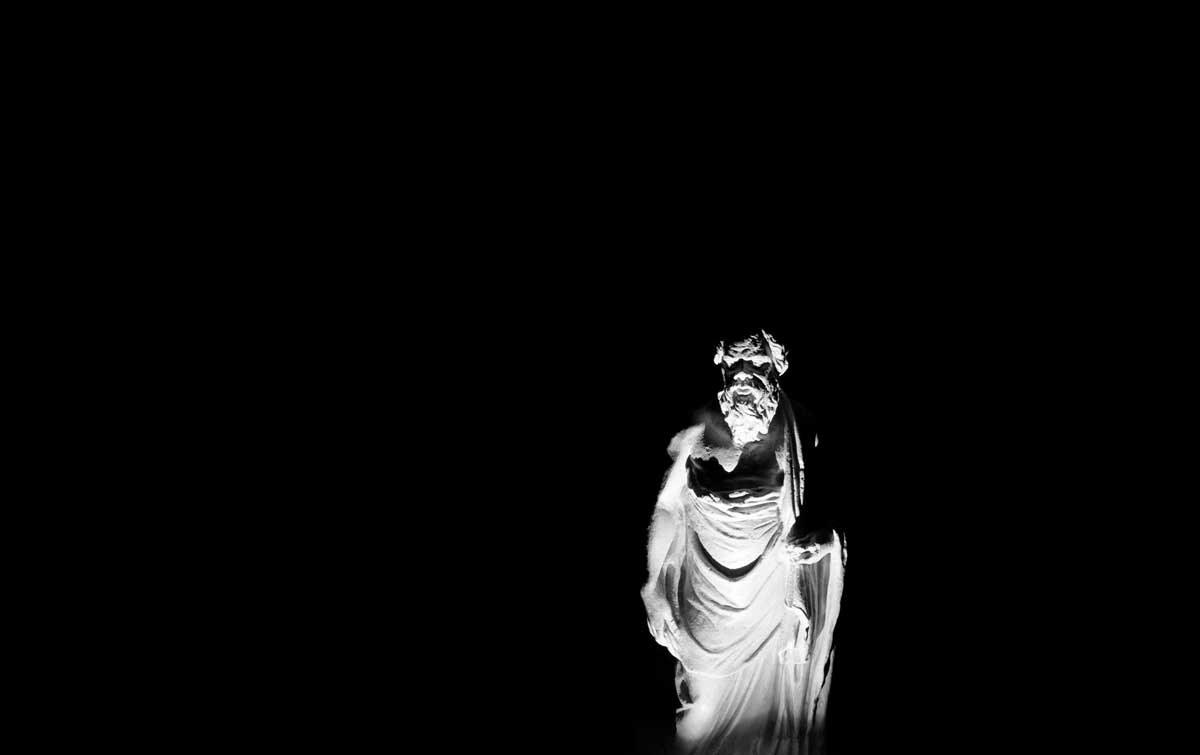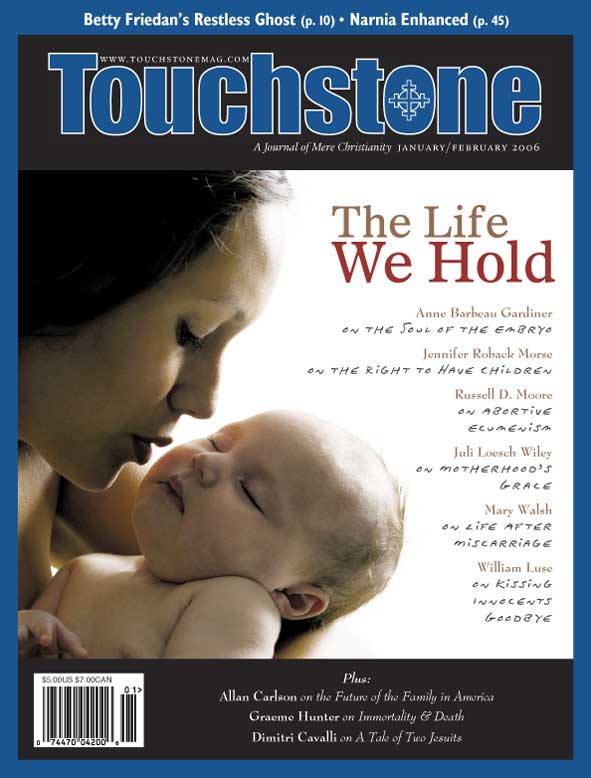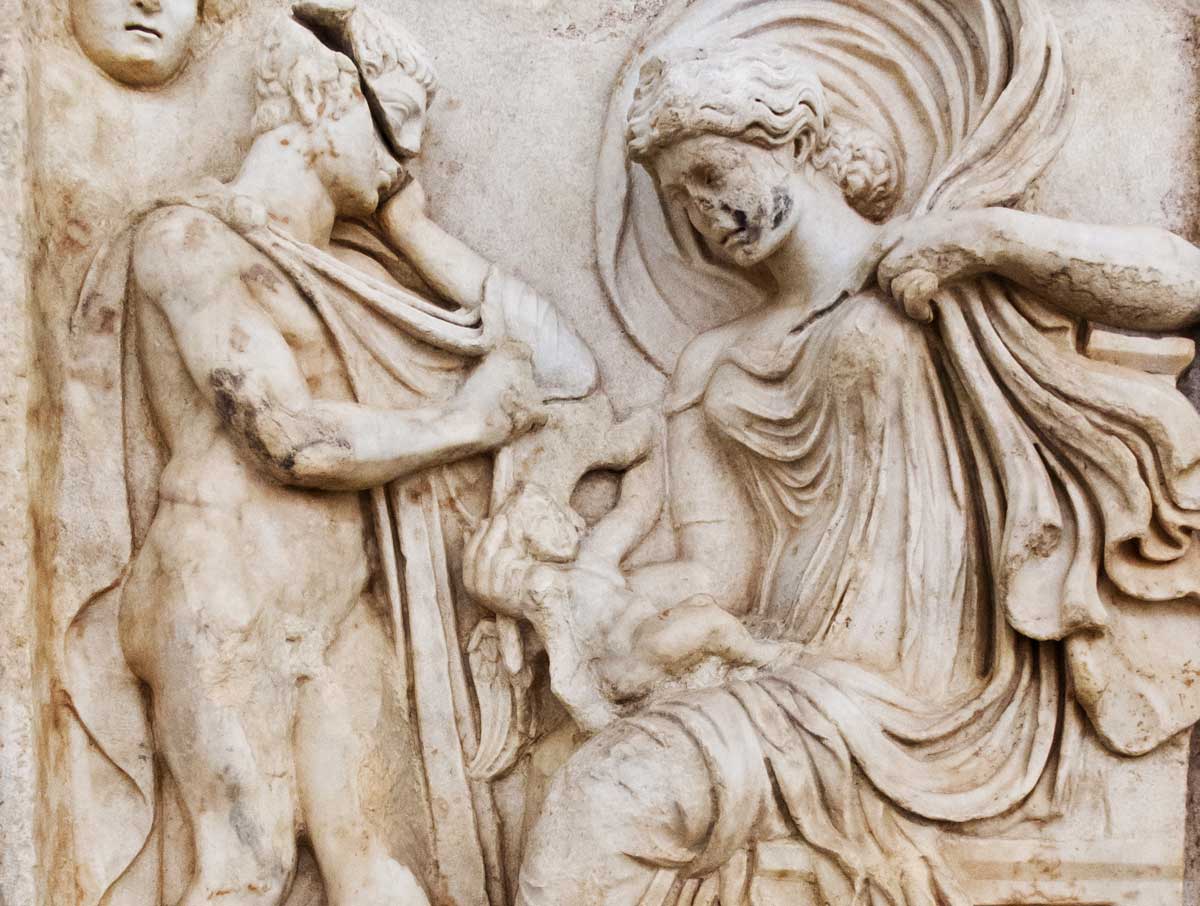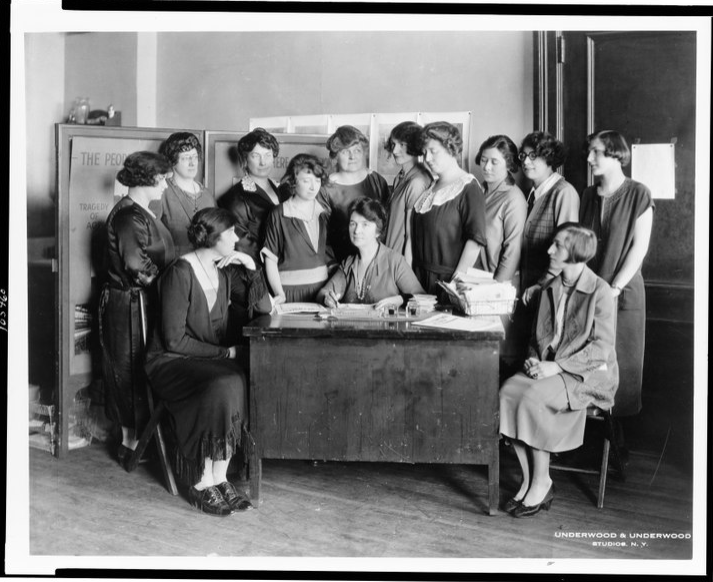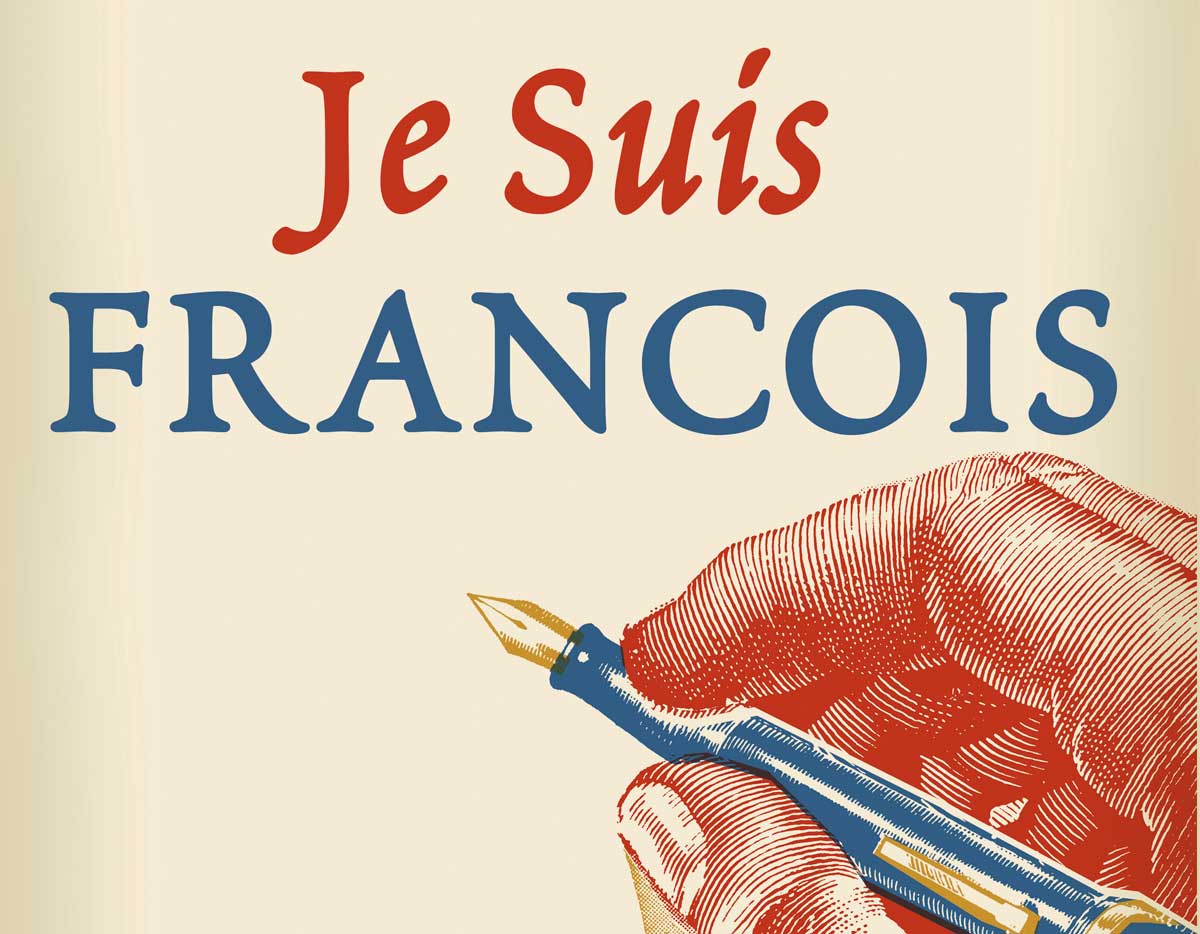View
As If We Were to Be Immortal
Graeme Hunter on Death & Seven of the Last Words of Socrates
Business, said the keynote speaker at a recent pro-life conference, frequently takes him to Holland, the country that seems to have embraced the culture of death with the most enthusiasm. Years ago, he told us, he had begun noticing how few children there were on city streets. On his last visit he became aware of another absence. Now there are fewer old people as well.
The implications of the story were not lost on his graying, middle-class audience. It prepared us well to consider his main point, which was that it is time for the pro-life movement to be less of a circle focused on abortion, and more like an ellipse, with euthanasia as its second focal point. Euthanasia is where the proponents of death are heading next, and we do not want to be unprepared.
Blunt Weapons
That powerful illustration and the recommendation it undergirded came at the beginning of his talk. The speaker went on to spell out for us what the evil of euthanasia was, but the coughs and rustlings across the large room were evidence that his words were not getting through.
Why not? All of us agreed with him. But he would have held our attention better if he had applied his own earlier counsel to himself. If the euthanasia threat is new, it will have to be encountered with new weapons, whereas his weapons were the chipped and blunted ones left over from the brutal abortion battles. Among his hearers were some who had helped to forge those weapons, who were now beyond being frightened by them.
Abortion, he reminded us, is a hideously lopsided transaction: It demands the greatest sacrifice from the unborn—the sacrifice of life itself—and often only in order to secure the convenience or to avoid embarrassment or financial hardship for the adults concerned. The altar of convenience drips with the blood of our children. Now we are enlarging it in order to be able to slaughter our parents there. That, at least, was the gist of the argument, along with the exhortation to step up our fight against euthanasia.
But as he turned to the topic of euthanasia, I began to feel not just the slight impatience I detected around me, but actual resistance to the argument. Into my mind, rather incongruously I thought at first, but relentlessly, swam thoughts about the death of Socrates. But what was the connection? Was it just that he was an old man? Or that he was put to death by the state?
Socrates was executed, not euthanized. There was no obvious connection between his death and euthanasia, and yet there he was in my mind, insisting on being noticed, above the drone of the speaker's words.
He entered not as an image, nor as anything vague. He was saying something he had said about death at his trial, just after expressing scorn and dislike for men who cringe and beg to avoid execution. Such behavior is unconscionable, Socrates was saying, even when they are not guilty of the crime for which they are condemned.
"I have often seen them do this sort of thing when standing trial," Socrates told the jurors, "men who are thought to be somebody, doing amazing things as if they thought it a terrible thing to die, and as if they were to be immortal if they did not die in this way."
Noble Socrates
Not all these words crowded into my mind at once. Most of them I had to dig up later, going back to see how the text actually puts it. It was seven words from the passage just quoted that floated verbatim out of some recess of memory, the counterfactual ones: "as if they were to be immortal." The Socratic commentator in the shadows of my unconscious mind wanted me to hold up those words to the ongoing talk about euthanasia.
The speaker was saying that there was no comparison between the convenience and economy we as a society were seeking for ourselves in accepting euthanasia and the supreme sacrifice we were demanding of the old. We were taking our parents' all, we were asking for their lives.
Their lives . . . But the spectral Socrates insisted on adding, "as if they were to be immortal, if they did not die in this way."
The Socratic counterpoint was nobler than the speaker's point. That was my first thought. The position the speaker was attributing to our elders, and expected us to be taking ourselves not many years from now, when we are elders, was that dying is the supreme evil.
Socrates said something better. He said doing wrong, even a small wrong, was worse than death. At the end of his trial he gave this ringing charge to the jury: "You too must be of good hope as regards death, gentlemen of the jury, and keep this one truth in mind, that a good man cannot be harmed either in life or in death, and his affairs are not neglected by the gods."
At least that is a nobler attitude than cringing at death. It is also more truthful, not acting as if the alternative to present death were immortality. But isn't it also more Christian? Socrates thought that death was a mystery that could not be known to be evil and might be good. But we have the word of our Lord that he has gone to prepare for us, not just rooms, but mansions, that where he is, there we may be also. St. Paul has taught us that for us to die is gain. Or so we say at church.
No doubt the speaker was right that euthanasia should become the new focus in the pro-life debate, but it also demands some new arguments. When debating abortion, it may be effective to point to the millions of unborn whom our selfishness will never allow to laugh or live or draw a single breath on this beautiful earth. But their sacrifice cannot be compared with that of old men and women who, like King Lear's companions, have seen the best of their time.
Real Greatness
So I thought. But that, too, was wrong, and Socrates would not let me rest. His claim was about good and evil, not about youth and age. If he were right about death, the point applied to the unborn as much as to the frailest gaffer. And as I considered that, another voice entered my consciousness, that of an American preacher of an earlier generation, M. S. Rice.
One morning he buried a man of 83 who by hard work had raised himself to a place of honor and dignity in his town. He had been successful in business, pious in his life, and fortunate in his wife and children. He came to the end of his days loved by his friends and family, respected by all, accompanied on his journey to God by the prayers and praises of his community. In short, he lived the life most of us would wish to live.
That same day in the afternoon Rice went to another house of sorrow. He had to find words to comfort parents whose infant child had lived only a few days and then painfully died, without gaining any appreciation of the world into which it had been born, or the parents who had brought it here with such high hopes, or the joys of a life it would never know.
"Mr. Rice," said the grieving father to the minister, "What is the use of having lived at all?" It was a heartfelt inquiry of the kind that puts our own life in question, exposing our usual excuses for living as threadbare. But as sometimes happens in such situations, a light flashed into the darkness of that question, a light that, Rice says, did not come from his own mind. "You are an engineer, and have learned a little calculus," he said spontaneously to the father,
You know therefore that when placed next to infinity any finite number is the equal of any other. It seems strange at first, but it is mathematically certain. The infinite member of the equation being incomparably great, whatever we compare with it has the same significance. Now let us do a little human calculus with your baby. Take him, or your 30-year-old self, or the old man I buried this morning and lay up against you all the immortality for which each of you was born. The result is the same. The real greatness of a human life is not how long it shall live on this earth, but the fact that it is an immortal life, destined to live forever with God.
The Battleground
In his sudden illumination the pastor had seen a truth that can easily be forgotten. It is not our earthly lives but God's gift of immortality that defines our worth.
Eternal life cannot be affected by the decisions of abortionists or euthanizers or the weak-willed adults who seek out their services. We adults, struggling through the middle of life's way, may destroy ourselves, if we spurn the lives God entrusts to us. But we will not be permitted to harm them. Their affairs are not neglected by God.
God's perfect will is for us to struggle against evil wherever we find it, in an attempt to win back those who are attracted to the dark logic of death. But the babies they kill belong to God no less than do the lives of aged saints. The battle in the abortion mills that are, and in the euthanasia factories that are to come, is for the hearts of those who work there, who have been deceived by death's seductive simplicity.
Graeme Hunter is a contributing editor to Touchstone and Research Professor of Philosophy at Dominican University College in Ottawa. He is the author of Radical Protestantism in Spinoza's Thought (Ashgate).
subscription options
Order
Print/Online Subscription

Get six issues (one year) of Touchstone PLUS full online access including pdf downloads for only $39.95. That's only $3.34 per month!
Order
Online Only
Subscription

Get a one-year full-access subscription to the Touchstone online archives for only $19.95. That's only $1.66 per month!
bulk subscriptions
Order Touchstone subscriptions in bulk and save $10 per sub! Each subscription includes 6 issues of Touchstone plus full online access to touchstonemag.com—including archives, videos, and pdf downloads of recent issues for only $29.95 each! Great for churches or study groups.
Transactions will be processed on a secure server.
more on abortion from the online archives
more from the online archives
calling all readers
Please Donate
"There are magazines worth reading but few worth saving . . . Touchstone is just such a magazine."
—Alice von Hildebrand
"Here we do not concede one square millimeter of territory to falsehood, folly, contemporary sentimentality, or fashion. We speak the truth, and let God be our judge. . . . Touchstone is the one committedly Christian conservative journal."
—Anthony Esolen, Touchstone senior editor





